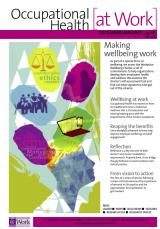December/January 2015/2016 (vol. 12/4)
ContentsFeaturesNewsLegal
NewsResearch DigestResearch PlusCPD
Research Plus
Needlestick injuries and psychosocial factors
Psychosocial work characteristics among hospital nurses are not associated with the risk of sustaining a sharps or needlestick injury (NSI), according to a prospective study involving 1,791 female nurses across 12 hospitals in China. Fourteen psychosocial work characteristics – including physical and emotional demands, influence over work, freedom on when to take breaks, commitment to the workplace, job satisfaction, leadership and social support – were assessed using the Copenhagen Psychosocial Questionnaire. A follow-up questionnaire additionally asked respondents if they had experienced an NSI in the 12 months between the two surveys – 53% of nurses reported having experienced at least one NSI. Of the 14 psychosocial characteristics only quantitative work demands (such as having to work very fast) were marginally associated with increased self-reported NSI risk (relative risk = 1.13; CI 1.01–1.26). However, sustaining an NSI was associated with poorer scores for various psychosocial characteristics measured at follow-up, including lower scores for perceived influence over work, commitment to the workplace, quality of leadership, social support and social community at work.
Occupational Health at Work December/January 2015/2016 (vol. 12/4) pp37



